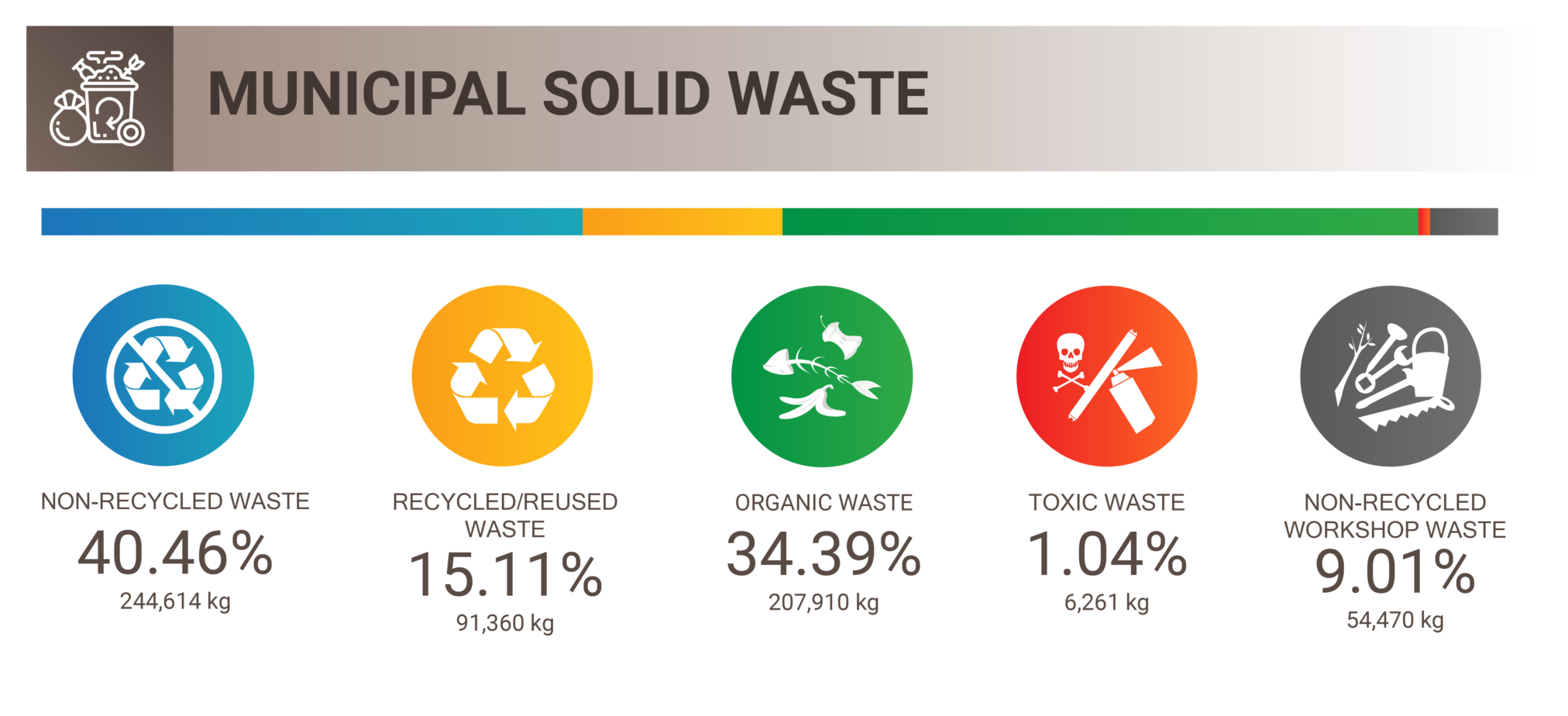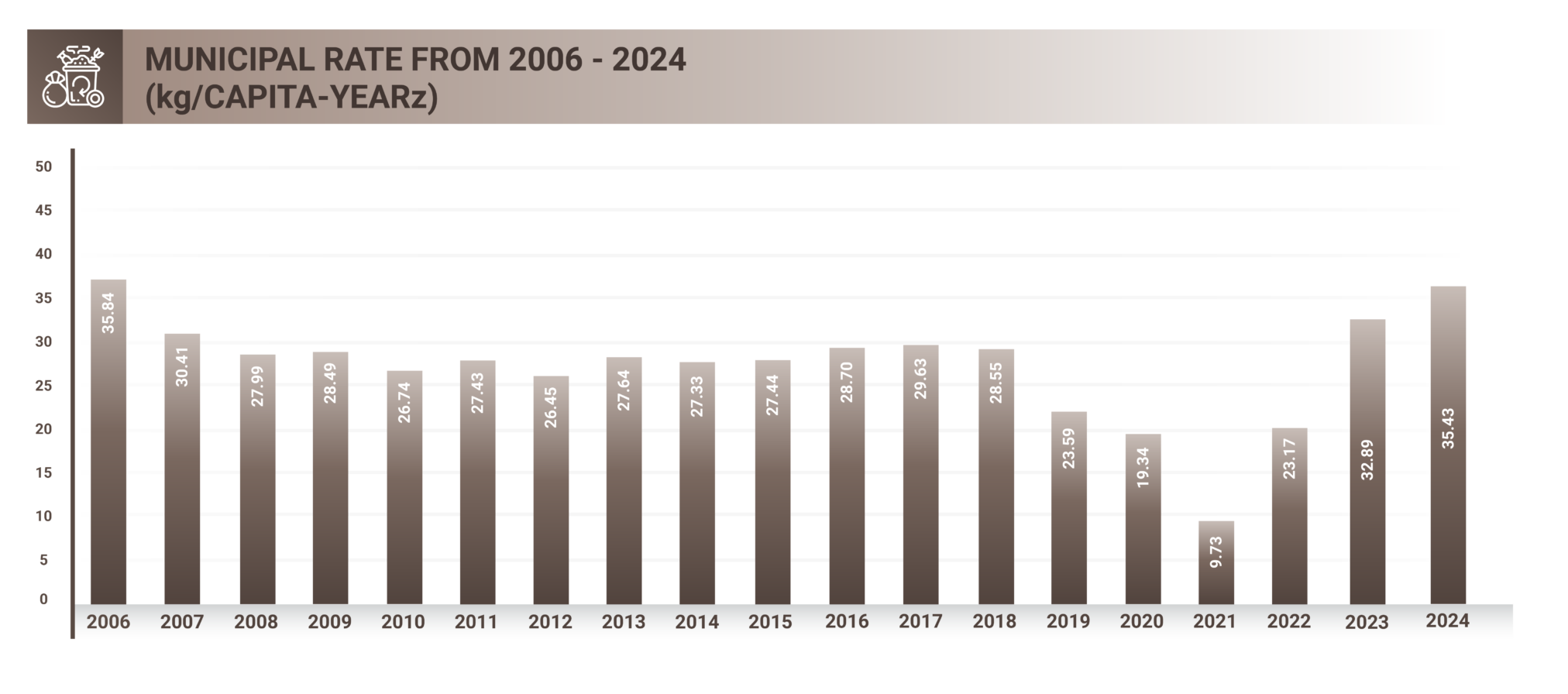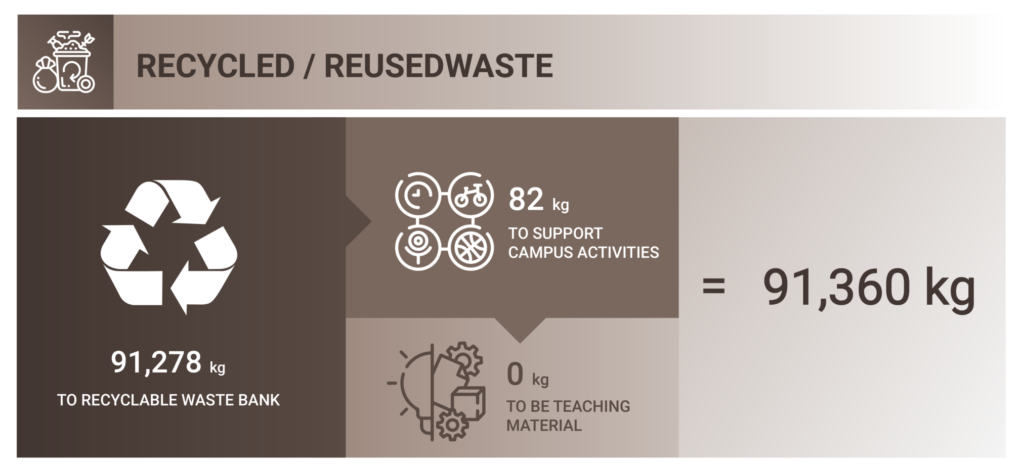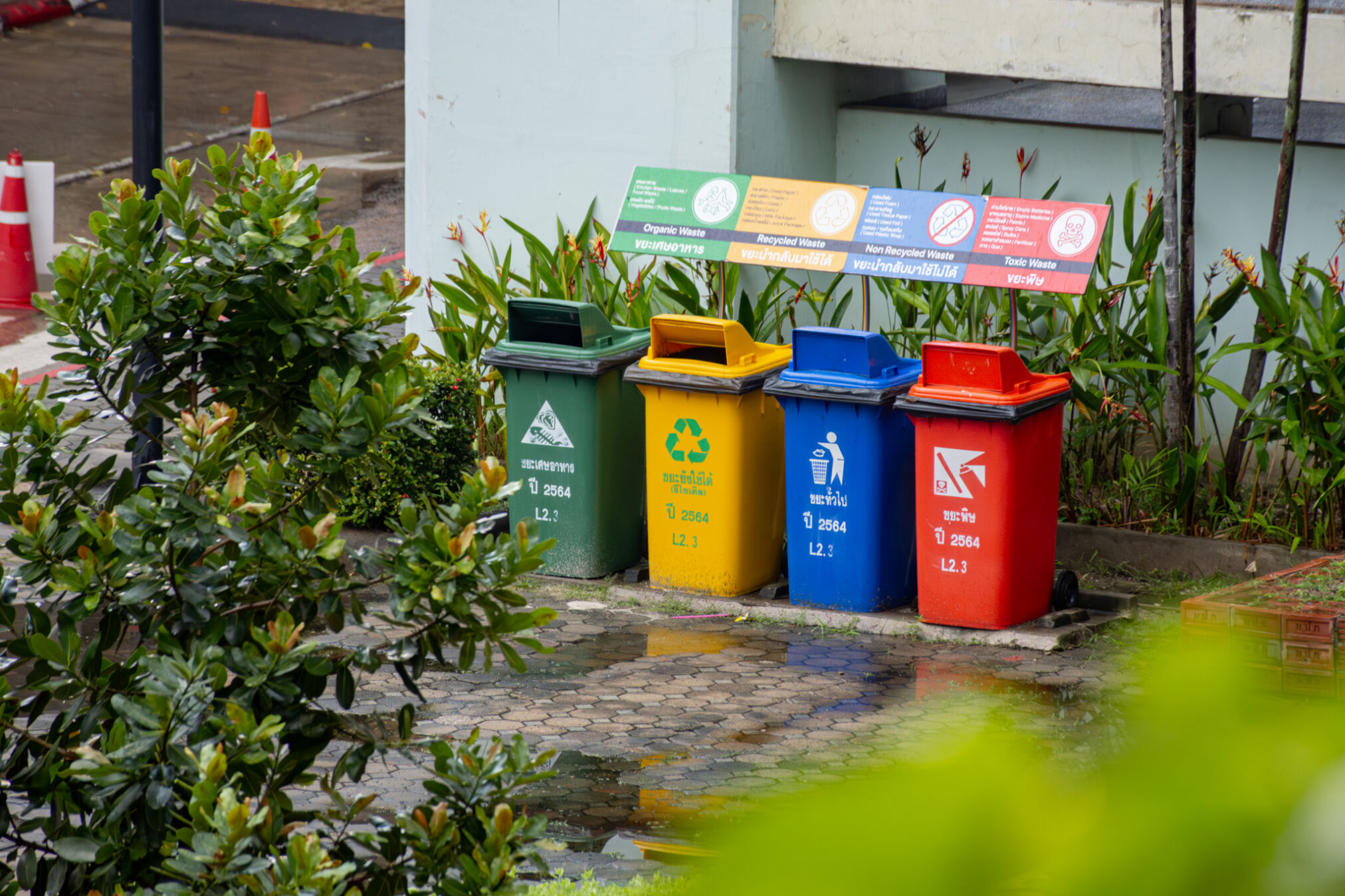Municipal Solid waste Generation in KMUTT
Target: 40% of municipal solid waste reduction by 2024 compared to 2006 baseline
Current Status: In 2024, 1.14% of municipal solid waste reduces, compared to 2006 baseline.

Municipal Waste Trends and Composition: A Focus on Sustainable Management
The first chart showcases the Municipal Waste Rate from 2006 to 2024, measured in kg per capita per year. The data reveals fluctuations over the years, with notable decreases in recent times but a significant rise in 2023 and 2024. Starting at 35.84 kg per capita in 2006, the rate saw a downward trend, reaching a low of 9.73 kg per capita in 2021. However, it rebounded to 32.89 kg in 2023 and peaked at 35.43 kg in 2024. This data reflects the changing dynamics of waste generation, emphasizing the importance of sustainable waste management.
The second graphic provides a breakdown of Municipal Solid Waste by type in 2024:
- Non-Recycled Waste constitutes the largest portion, making up 40.46% or 244,614 kg.
- Organic Waste follows closely with 34.39%, equating to 207,910 kg, highlighting a potential area for composting initiatives.
- Recycled/Reuse Waste accounts for 15.11% or 91,360 kg, reflecting efforts towards recycling but also showing room for improvement.
- Non-Recycled Workshop Waste makes up 9.01% or 54,470 kg, a specialized category that requires targeted waste reduction strategies.
- Toxic Waste represents the smallest fraction at 1.04% or 6,261 kg, underscoring the need for careful handling and disposal methods.
These insights highlight the composition and evolution of municipal waste, encouraging a shift towards sustainable practices to manage waste efficiently and reduce environmental impact.


KMUTT’s Waste Management Solutions
Based on the data showing the municipal waste rate trends from 2006 to 2024, which indicates fluctuations and a significant increase in recent years, King Mongkut’s University of Technology Thonburi (KMUTT) acknowledges the growing waste issue in the community. To address this sustainably, KMUTT has outlined the following strategies:
- Promoting Reduction of Non-Recyclable Waste
With non-recyclable waste constituting 40.46% of the total waste, KMUTT aims to implement measures that minimize non-recyclable waste through awareness campaigns and policies that encourage students, staff, and the community to reduce single-use items. - Enhancing Organic Waste Management
Organic waste makes up 34.39% of the total waste. KMUTT is exploring composting initiatives and other organic waste processing methods to convert food and green waste into useful by-products, which can help reduce the burden on landfills. - Increasing Recycling and Reuse Efforts
Although 15.11% of waste is currently recycled or reused, KMUTT aims to improve this rate by expanding recycling facilities, promoting waste sorting, and encouraging the campus community to participate in recycling programs. - Specialized Management for Workshop Waste
Non-recycled workshop waste accounts for 9.01%. KMUTT plans to introduce targeted reduction strategies and explore alternative materials that are more environmentally friendly in campus workshops and laboratories. - Ensuring Safe Disposal of Toxic Waste
Although toxic waste represents only 1.04% of the total, it poses environmental and health risks. KMUTT is committed to handling and disposing of toxic waste safely and responsibly, following all regulatory standards.
By implementing these strategies, KMUTT demonstrates its commitment to sustainable waste management and strives to become a model for environmental responsibility within the academic and local community.
Inorganic Waste Treatment
In 2024, the result from municipal solid waste segregation shows that Non-recycled waste and Non Recycled Workshop waste which defines as trash, discarded paper, plastic,metal and others are Inorganic waste with generate in the total of 91,360 kg. These inorganic waste have sent to the outsource services from Bangkok Metropolitan Administration for landfill and incineration which comply to standard practice. However, those inorganic waste is still tracked until it arrives at land fill. For the waste in this area, it collected and sent to Ratchathewa powerplant where they extract bio-gas from landfill.


